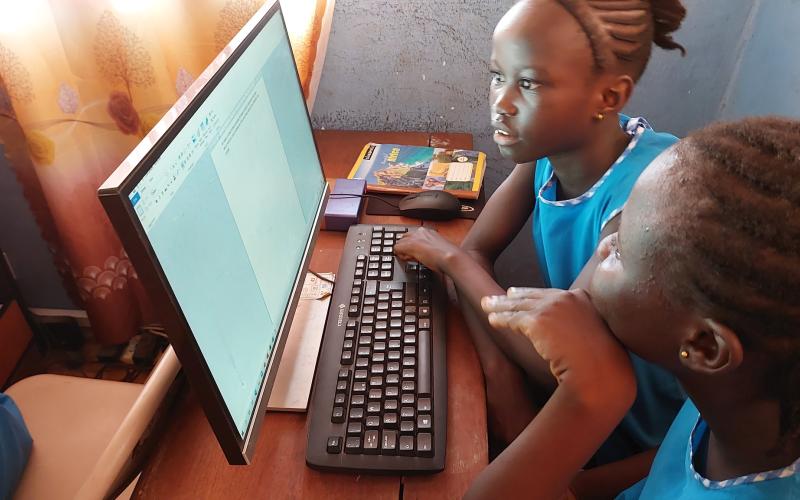
All girls, regardless of the circumstances in which they were born, have the right to a quality education. A quality education provides the foundation for an individual to realize his or her dreams.
In Africa, over twenty-four million girls do not attend primary school, and boys outnumber girls in school attendance by at least 8 percent. And of those girls who do enroll, 9 percent more drop out before the end of the sixth grade than boys. Source: Carol Bellamy, “Statement on the Launch of the Girls Education Movement, “ Uganda, August 15, 2001.
Approximately half of the human population is female, so to not educate girls is not only an injustice to them; it is an injustice to their nation and the entire world. According to UNICEF, educating girls yields spectacular social benefits for the current generation and those to come.
Educating girls is no longer an option- it is a necessity! Below are just a few reasons why we must forge forward in educating African girls:
An educated girl tends to marry later and have healthier children.
The children she does have will be more likely to survive; they will be better nourished and better educated.
She will be more productive at home and better paid in the workplace.
She can make healthier decisions and better protect herself against HIV/AIDS.
She can assume more active roles in social, economic, and political decision-making throughout her life.
Because she is a healthy, well-educated, and emancipated woman, she will rear a healthy, well-educated, and emancipated child.
These benefits are transmitted across generations, communities, and nations. They help pull individuals, families, communities, and nations out of poverty.
Education is instrumental in developing a young girl's values and virtues. It cultivates children into mature individuals capable of planning for their futures and making the right decisions. More educated women also tend to be healthier, participate more in the formal labor market, earn more income, have fewer children, and provide better health care and education to their children, all of which eventually improve the well-being of all individuals and lift households out of poverty.
UNICEF calls the lack of education “life-threatening” for girls in countries in the throes of the HIV/AIDS epidemic. Among uneducated girls in Africa, 40 percent know nothing about AIDS, but that figure dwindles to 8 percent among women who have completed post-primary schooling.1
Education is simply the soul of a society as it passes from one generation to another. Gilbert Chesterton
It is no secret that today’s children are tomorrow’s leaders, and educating African girls will have a positive impact on the future of Africa and, thus, a positive impact on the world.
According to the World Bank, “The inter-linkages between gender inequalities, economic growth and poverty are the main reasons why girls’ education is a smart investment.”
Kofi Annan said it ideally: "To educate girls is to reduce poverty."
This is why there should be an increased focus on girls' education.
Articles and Resources:
When You Educate A Girl, Everything Changes
The State of Girl's Education - United Nations

